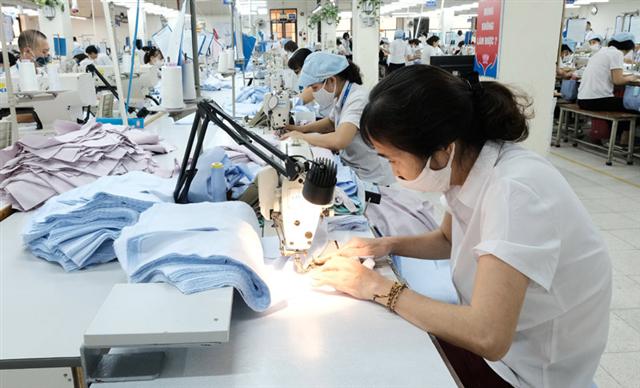Vietnam's 2016 inflation seen picking up, says World Bank
Vietnam's 2016 inflation seen picking up, says World Bank
Vietnam's inflation is forecast to pick up to 4.9 percent in 2016, in line with a government target, while increased lending keeps the economy resilient despite a fragile global environment, the World Bank said on Monday.

"Inflation is expected to come in just below the official target of 5 percent this year and then moderate next year as administrative price hikes -- which were the main driver of inflation this year -- moderate," the bank said in a report.
It forecast year-end inflation to slow to 3.7 percent in 2017, compared with 4.5 percent in its previous forecast in July, when it had pegged the annual inflation rate at 4 percent for this year.
The bank kept unchanged its forecasts for Vietnam's economic growth this year at 6.0 percent and 6.3 percent for 2017.
"Vietnam's economy remains resilient, thanks to robust domestic demand and export-oriented manufacturing," the bank said in the report.
It said rapid credit growth and an accommodative fiscal stance provided short-term support to the economic growth while raising "existing medium-term financial and fiscal risks."
The credit growth is projected at 19 percent for 2016, World Bank lead economist Sebastian Eckardt told reporters.
The projection is within the expectations of the Vietnam central bank, which had said earlier that credit was expected to grow an annual 18-20 percent this year.
Interbank rates have eased, suggesting good liquidity, while the central bank has built the country's foreign exchange reserves to a level now sufficient to cover less than three months of imports, Eckardt said.
The World Bank expects the current account balance to widen to a surplus of 1.5 percent of gross domestic product this year from 0.5 percent in 2015, citing slowing import growth.
January-October imports rose 2.2 percent from a year earlier, far below the 13.4 percent annual growth in the same period last year, the bank said.
Medium-term risks faced by Vietnam include fragile financial market conditions and rising interest rates as the country plans to tap overseas markets to meet its fiscal financial needs, the bank said.
Waning prospects of the Trans-Pacific Partnership pact may affect Vietnam, "given its strong trade exposure to the U.S. market," the bank added.
Vietnam will shelve ratification of the U.S.-led TPP due to political changes ahead in the United States, but wants to maintain good relations with Washington as much as it does all other countries, the country's prime minister said last month.






















